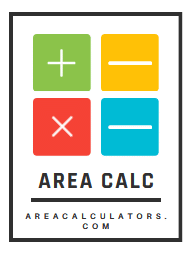Every liquid solution has a density — a measure of how much matter is packed into a given space. The Solution Density Calculator helps you determine this by using just the mass and volume of your solution. Whether you're preparing lab solutions, adjusting chemical concentrations, or verifying product consistency, this tool gives you a fast, accurate density result.
No advanced chemistry needed—just two numbers and a click.
What Is Solution Density?
Solution density tells you how heavy a liquid solution is for its size. It’s usually expressed in grams per cubic centimeter (g/cm³) or kilograms per liter (kg/L).
This value is essential in chemistry, manufacturing, and laboratory work because it affects:
-
Mixing accuracy
-
Dosage measurements
-
Reaction rates
-
Quality control
A slight change in solution density can mean a big difference in performance or safety.
The Formula for Solution Density
🧮 Solution Density = Mass of Solution ÷ Volume of Solution
Contents
Use grams and milliliters, or kilograms and liters — just keep units consistent.
📊 Variable Table
| Variable | Meaning |
|---|---|
| Mass of Solution | Total weight of solute + solvent (g or kg) |
| Volume of Solution | Total liquid volume (mL or L) |
| Solution Density | Result in g/mL or kg/L |
Example: Calculating Solution Density
You prepare a solution with a mass of 250 grams and a final volume of 200 milliliters.
Apply the formula:
Solution Density = 250 ÷ 200 = 1.25 g/mL
This means the solution is denser than water, which could indicate a concentrated salt or sugar solution.
How to Use the Calculator
-
Measure the total mass of your solution
Include both solute and solvent. -
Measure the final volume of the solution
Use a graduated cylinder for precision. -
Input your values
Get the result in g/mL, kg/L, or your selected unit.
This is especially useful for chemical mixing, drug formulation, and liquid testing.
Where This Calculator Is Used
🧪 Chemistry labs – measuring solution strength and mixing precision
💊 Pharmaceuticals – preparing syrups and liquid medications
🌱 Agriculture – creating nutrient solutions for plants
🏭 Food and beverage – checking product concentration
🏥 Medical labs – calibrating diagnostic reagents
🚚 Industrial quality control – confirming batch consistency
Tips for Best Accuracy
✅ Use calibrated tools to weigh and measure volume
✅ Ensure the solution is well mixed before measurement
✅ Remove air bubbles from measuring containers
✅ Record temperature — density can change with heat
✅ Always use consistent units across mass and volume
Common Mistakes to Avoid
❌ Mixing up grams and kilograms
❌ Forgetting to include solute weight in total mass
❌ Measuring volume before mixing completely
❌ Using rough estimates instead of lab tools
❌ Ignoring temperature — it affects solution expansion
FAQs:
What is the typical density of water-based solutions?
They often range from 0.9 to 1.5 g/mL, depending on what’s dissolved.
Does temperature affect solution density?
Yes. Most solutions become less dense as temperature increases.
Can I use this for saltwater or sugar solutions?
Absolutely. It works for any liquid with a dissolved substance.
Is this calculator suitable for acids and bases?
Yes, as long as mass and volume are measured accurately.
What unit is most commonly used?
Grams per milliliter (g/mL) is standard for labs. Kilograms per liter (kg/L) is used in industry.
Can I measure density before mixing?
No. Always measure after full mixing to get the correct result.
Conclusion:
The Solution Density Calculator is a practical, reliable way to find the density of any liquid solution. Whether you're formulating a product, conducting a lab test, or validating a mixture, this tool ensures precision and consistency every time.
Simple to use. Scientifically accurate. Always essential.
